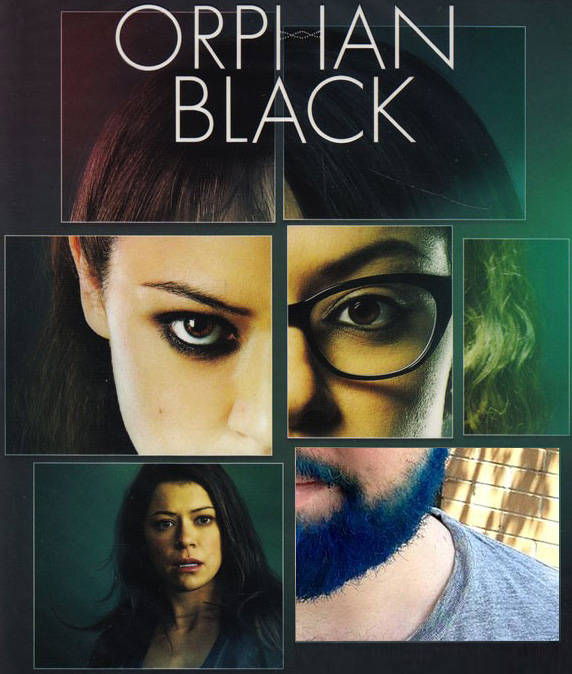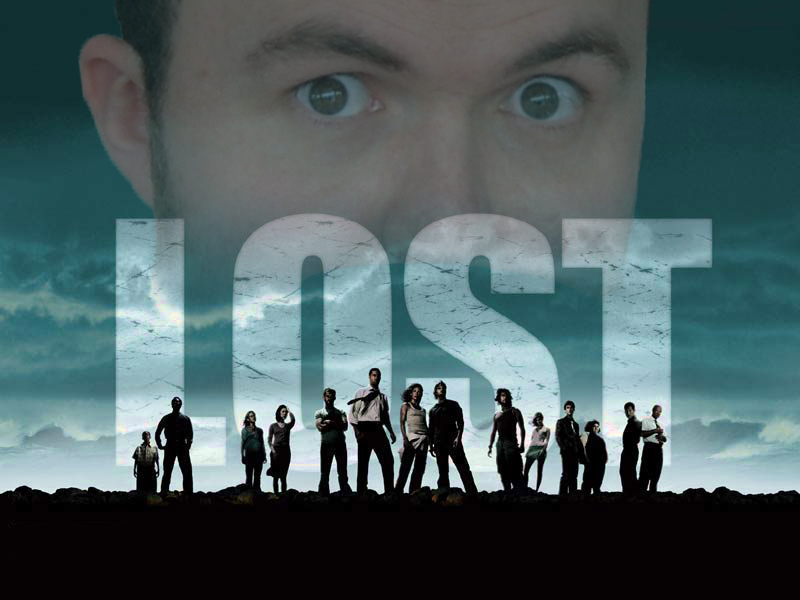The Other Woman is surprisingly fun (with a heavy emphasis on surprisingly).
It was selected for this column due to claims it was a film starring three women that doesn’t ever manage to pass the Bechdel Test – the film has been getting a barrage of negative criticism, the trailer is awful, and by all appearances, it looks like a collection of shrewish women plotting horrible revenge on a cheating man.
But that’s not what the film is about.
It does, admittedly, happen in the film. A group of women plot – and enact – revenge on the philandering Mark (Nikolaj Coster-Waldau – Jaime from Game of Thrones) – but that’s not what the film is about.
The Other Woman is about friendship – specifically, friendship between women who aren’t used to having female friends. It’s surprisingly fun (and, even more surprisingly, not misogynstic in the slightest).
Carly (Cameron Diaz) has just started dating Mark, when she learns that he’s married to Kate (Leslie Mann). The two women form an unlikely bond, and discover that Mark is also seeing Amber (Kate Upton), who is young and hot – everything they feel like they’re not.
Rather than treat her with ill-will, however, they quickly recruit her as an ally – and friend.
It’s a standard comedic trio – the organised one, the insecure one, and the ditz – that you rarely see played by three women. What’s even stranger about the film is that the only character in the film who doesn’t even have a hint of personality is the male lead.
Carly, Kate, Amber, and even Kate’s secretary (Nicki Minaj) are all believable and interesting characters. What’s more, they’re all funny. Leslie Mann gives her best performance to date, making the alternately confused and giddy wife into a fun character that you could watch for far longer than the film’s 109-minute run-time.
There are three male characters in the film – Kate’s brother (Taylor Kinney), Carly’s father (Don Johnson) and Mark. Again, atypically for a Hollywood film, they’re defined by their relationships to the female leads; while the film focuses on Mark, he exists purely to serve as a boyfriend, husband and cheater.
No, the film isn’t a bastion of feminism. It won’t be held up for decades to come as an ideal of strong female characters. But despite their plot revolving around a man, they are strong female characters – believable, well-rounded and multi-faceted. They’re proactive, they’re conflicted – everything a well-written character should be.
What’s more, the film is genuinely fun and funny. There’s one extended sequence that feels shoe-horned in – the majority of it made it to the trailer, and the plot would be stronger without it (giving the whole segment a hint of “executive meddling”) but if you can ignore the five-to-ten minutes of eye-rolling antics and agony, it’s one of the strongest comedies released this year.
The Other Woman passes both the Bechdel and Reverse Bechdel Test. The vast majority of conversations in the film, however, are between the women – many of them are about Mark, obviously, but they also discuss other things: sweat (as seen in the trailer), shaving (admittedly in the context of of sex with a man), dogs, smoking, drinking, but more than anything friendship.
Because no matter how you spin it, that’s what the film is about. Women and their friendships. In this film, they start from a weird place, but the bonds soon prove to be both genuine and important.
Interestingly, it barely scrapes a Reverse Bechdel. There’s only one conversation between two men, where (after discussing ex-wives and new girlfriends) the topic briefly turns to business for just a few lines.
But the film’s theme is female friendships. It arises in reaction to a man’s actions, true, but Mark isn’t a character – he’s a plot-point. He’s an obstacle to be overcome, relevant solely in how he affects the relationships between the women. He’s a one-dimensional caricature that the film makes clear is only found attractive because he’s aesthetically appealing: exactly the complaint many have about women in gender-flipped roles.
The Other Woman is an odd sort of progress, but it’s definitely progress.
(This article was originally posted on the 20th of June, 2014 over at Illegitimate Theatre.)









Your house is valueble for me. Thanks!?
WONDERFUL Post.thanks for share..extra wait .. ?
very nice publish, i certainly love this website, carry on it
Thank you for all your work on this web site. Gloria really loves working on investigation and it’s really easy to understand why. I hear all about the powerful mode you create worthwhile thoughts by means of the web blog and as well as encourage contribution from some others about this theme plus our favorite daughter is actually starting to learn a lot of things. Take advantage of the rest of the new year. You’re doing a useful job.
This is the appropriate blog for anybody who needs to search out out about this topic. You notice so much its virtually arduous to argue with you (not that I really would need匟aHa). You definitely put a new spin on a topic thats been written about for years. Nice stuff, just nice!
That is the fitting blog for anyone who desires to find out about this topic. You understand a lot its almost laborious to argue with you (not that I really would want匟aHa). You undoubtedly put a brand new spin on a subject thats been written about for years. Nice stuff, just great!
This website online is mostly a walk-by way of for the entire data you wanted about this and didn抰 know who to ask. Glimpse here, and you抣l undoubtedly discover it.
Would you be desirous about exchanging hyperlinks?
After examine a few of the weblog posts on your website now, and I really like your method of blogging. I bookmarked it to my bookmark website record and can be checking back soon. Pls check out my web page as well and let me know what you think.
This really answered my downside, thank you!
very nice publish, i certainly love this website, carry on it
There are some attention-grabbing cut-off dates on this article however I don抰 know if I see all of them heart to heart. There may be some validity however I’ll take hold opinion until I look into it further. Good article , thanks and we want extra! Added to FeedBurner as properly
This really answered my downside, thanks!
Would you be interested in exchanging links?
I am glad for commenting to make you know of the helpful encounter my girl found checking the blog. She realized lots of details, most notably what it is like to possess an amazing coaching style to get other people without hassle understand some tricky topics. You really exceeded visitors’ expectations. Many thanks for providing these invaluable, dependable, educational and easy tips about this topic to Janet.
This is the fitting blog for anybody who desires to search out out about this topic. You understand so much its nearly onerous to argue with you (not that I really would need匟aHa). You positively put a brand new spin on a subject thats been written about for years. Great stuff, simply nice!
I was very pleased to search out this internet-site.I needed to thanks to your time for this glorious read!! I definitely having fun with each little little bit of it and I have you bookmarked to take a look at new stuff you weblog post.
Good post. I study one thing more challenging on different blogs everyday. It would always be stimulating to learn content material from different writers and follow a bit of something from their store. I抎 choose to make use of some with the content on my weblog whether or not you don抰 mind. Natually I抣l give you a link on your web blog. Thanks for sharing.
An fascinating dialogue is value comment. I believe that it’s best to write more on this subject, it won’t be a taboo subject but usually individuals are not sufficient to speak on such topics. To the next. Cheers
Aw, this was a very nice post. In concept I wish to put in writing like this moreover ?taking time and precise effort to make a very good article?however what can I say?I procrastinate alot and not at all seem to get one thing done.
I found your blog website on google and verify a few of your early posts. Continue to maintain up the superb operate. I simply further up your RSS feed to my MSN News Reader. Searching for ahead to reading extra from you in a while!?
I am typically to running a blog and i really respect your content. The article has really peaks my interest. I am going to bookmark your website and keep checking for brand spanking new information.
There are actually quite a lot of particulars like that to take into consideration. That may be a great level to convey up. I offer the thoughts above as normal inspiration however clearly there are questions like the one you carry up where an important factor shall be working in honest good faith. I don?t know if greatest practices have emerged around issues like that, but I am certain that your job is clearly recognized as a fair game. Each girls and boys feel the affect of just a second抯 pleasure, for the rest of their lives.
The next time I read a blog, I hope that it doesnt disappoint me as a lot as this one. I imply, I do know it was my option to learn, but I truly thought youd have something fascinating to say. All I hear is a bunch of whining about one thing that you could repair should you werent too busy in search of attention.
An interesting discussion is value comment. I think that it’s best to write more on this subject, it might not be a taboo subject but typically people are not enough to speak on such topics. To the next. Cheers
There are definitely a whole lot of particulars like that to take into consideration. That could be a nice point to convey up. I offer the ideas above as basic inspiration however clearly there are questions just like the one you carry up where crucial factor will likely be working in sincere good faith. I don?t know if finest practices have emerged around things like that, but I’m certain that your job is clearly recognized as a good game. Both girls and boys really feel the influence of just a moment抯 pleasure, for the rest of their lives.
An attention-grabbing dialogue is worth comment. I believe that it’s best to write more on this matter, it might not be a taboo topic however generally people are not enough to speak on such topics. To the next. Cheers
This is the precise blog for anybody who wants to seek out out about this topic. You realize so much its almost exhausting to argue with you (not that I really would need匟aHa). You undoubtedly put a brand new spin on a topic thats been written about for years. Nice stuff, just great!
Spot on with this write-up, I truly suppose this web site needs much more consideration. I抣l most likely be again to read way more, thanks for that info.
I抦 impressed, I have to say. Actually hardly ever do I encounter a weblog that抯 both educative and entertaining, and let me let you know, you might have hit the nail on the head. Your thought is outstanding; the issue is something that not enough people are speaking intelligently about. I am very joyful that I stumbled across this in my search for one thing regarding this.
I抦 impressed, I must say. Really not often do I encounter a blog that抯 each educative and entertaining, and let me inform you, you may have hit the nail on the head. Your concept is excellent; the difficulty is something that not enough people are talking intelligently about. I am very joyful that I stumbled across this in my seek for something regarding this.
I am also commenting to make you understand of the incredible encounter my cousin’s daughter had checking yuor web blog. She figured out numerous issues, not to mention what it is like to possess a wonderful coaching nature to make a number of people with no trouble master various complex issues. You undoubtedly exceeded our expectations. Thank you for distributing the precious, healthy, revealing and in addition cool tips on your topic to Mary.
Can I simply say what a relief to find someone who really is aware of what theyre speaking about on the internet. You positively know learn how to deliver a problem to light and make it important. Extra folks need to learn this and understand this aspect of the story. I cant imagine youre not more popular because you positively have the gift.
I was more than happy to seek out this net-site.I wanted to thanks in your time for this wonderful read!! I undoubtedly enjoying each little little bit of it and I’ve you bookmarked to check out new stuff you blog post.
I discovered your weblog website on google and verify a few of your early posts. Continue to keep up the superb operate. I just further up your RSS feed to my MSN Information Reader. In search of ahead to studying more from you later on!?
very nice submit, i certainly love this website, keep on it
WONDERFUL Post.thanks for share..more wait .. ?
After I initially commented I clicked the -Notify me when new comments are added- checkbox and now each time a remark is added I get 4 emails with the identical comment. Is there any method you’ll be able to take away me from that service? Thanks!
There are actually quite a lot of particulars like that to take into consideration. That could be a great point to bring up. I supply the ideas above as general inspiration but clearly there are questions like the one you convey up the place crucial thing might be working in sincere good faith. I don?t know if greatest practices have emerged around things like that, however I am positive that your job is clearly recognized as a fair game. Both boys and girls really feel the affect of just a moment抯 pleasure, for the rest of their lives.
That is the best weblog for anyone who desires to search out out about this topic. You understand so much its nearly onerous to argue with you (not that I really would need匟aHa). You positively put a brand new spin on a topic thats been written about for years. Nice stuff, just nice!
My husband and i were so cheerful that Emmanuel managed to complete his analysis through the entire ideas he acquired from your very own web site. It is now and again perplexing to just happen to be making a gift of thoughts that other people might have been making money from. And we all grasp we now have the writer to give thanks to for that. All of the illustrations you’ve made, the easy web site menu, the relationships you can help instill – it is many superb, and it’s assisting our son and us do think the idea is thrilling, which is really mandatory. Many thanks for the whole thing!
very nice publish, i certainly love this web site, keep on it
you might have an important weblog right here! would you like to make some invite posts on my weblog?
I found your blog web site on google and verify a few of your early posts. Proceed to maintain up the superb operate. I just further up your RSS feed to my MSN News Reader. Searching for ahead to reading extra from you in a while!?
I discovered your blog website on google and test a number of of your early posts. Proceed to maintain up the superb operate. I just further up your RSS feed to my MSN Information Reader. In search of ahead to reading extra from you in a while!?
Good post. I be taught something more difficult on different blogs everyday. It’s going to all the time be stimulating to read content material from different writers and practice a bit one thing from their store. I抎 favor to make use of some with the content on my weblog whether or not you don抰 mind. Natually I抣l provide you with a link on your net blog. Thanks for sharing.
When I initially commented I clicked the -Notify me when new feedback are added- checkbox and now every time a comment is added I get four emails with the identical comment. Is there any way you can remove me from that service? Thanks!
A powerful share, I just given this onto a colleague who was doing a little analysis on this. And he the truth is purchased me breakfast as a result of I discovered it for him.. smile. So let me reword that: Thnx for the treat! But yeah Thnkx for spending the time to discuss this, I really feel strongly about it and love studying extra on this topic. If doable, as you turn out to be expertise, would you thoughts updating your blog with extra details? It is highly useful for me. Big thumb up for this blog put up!
My spouse and i were so thankful when Emmanuel could conclude his preliminary research through your precious recommendations he got out of your weblog. It is now and again perplexing to just continually be releasing tactics which usually most people could have been making money from. Therefore we discover we’ve got the blog owner to thank for this. The entire illustrations you made, the easy site menu, the friendships you will make it possible to instill – it is all remarkable, and it’s leading our son in addition to our family do think that issue is thrilling, which is certainly tremendously important. Thank you for the whole lot!
I抎 need to examine with you here. Which is not something I often do! I get pleasure from studying a post that can make people think. Additionally, thanks for permitting me to remark!
There’s noticeably a bundle to know about this. I assume you made sure nice factors in options also.
An fascinating discussion is price comment. I think that it’s best to write extra on this subject, it may not be a taboo subject however generally people are not sufficient to speak on such topics. To the next. Cheers
I抎 have to verify with you here. Which isn’t something I usually do! I get pleasure from reading a publish that will make folks think. Also, thanks for permitting me to comment!
Would you be enthusiastic about exchanging hyperlinks?
The subsequent time I learn a blog, I hope that it doesnt disappoint me as much as this one. I imply, I know it was my choice to read, but I really thought youd have one thing attention-grabbing to say. All I hear is a bunch of whining about something that you would repair when you werent too busy on the lookout for attention.
An attention-grabbing discussion is value comment. I believe that it is best to write extra on this matter, it may not be a taboo topic however usually people are not enough to talk on such topics. To the next. Cheers
Thanks for all your efforts on this website. My mom really likes engaging in research and it’s really easy to see why. My partner and i hear all regarding the dynamic form you produce informative secrets on your website and in addition foster participation from visitors on the matter so our child is certainly being taught so much. Take pleasure in the remaining portion of the new year. You’re the one performing a stunning job.
Would you be considering exchanging hyperlinks?
With everything which seems to be building throughout this subject material, your points of view tend to be somewhat radical. However, I beg your pardon, but I can not give credence to your entire theory, all be it refreshing none the less. It looks to us that your remarks are actually not completely validated and in fact you are generally your self not really entirely confident of the assertion. In any event I did appreciate reading through it.
Hi i am kavin, its my first time to commenting anywhere, when i
read this piece of writing i thought i could also make comment due to
this good article.
Piece of writing writing is also a excitement, if you know then you can write if not it is difficult
to write.
It’s enormous that you are getting ideas from this article as well
as from our dialogue made at this place.
Having read this I believed it was really informative.
I appreciate you spending some time and effort to put this article together.
I once again find myself personally spending a significant
amount of time both reading and commenting. But so what, it was still worth it!
You could certainly see your skills within the work you write. The world hopes for more passionate writers such as you who are not afraid to say how they believe. Always follow your heart. “Until you’ve lost your reputation, you never realize what a burden it was.” by Margaret Mitchell.
Hey very nice blog!! Man .. Excellent .. Amazing .. I’ll bookmark your website and take the feeds also…I’m happy to find a lot of useful information here in the post, we need develop more techniques in this regard, thanks for sharing. . . . . .
I haven’t checked in here for some time since I thought it was getting boring, but the last several posts are good quality so I guess I will add you back to my everyday bloglist. You deserve it my friend 🙂
I just couldn’t depart your website prior to suggesting that I actually enjoyed the standard information a person provide for your visitors? Is gonna be back often in order to check up on new posts
After all, what a great site and informative posts, I will upload inbound link – bookmark this web site? Regards, Reader.
Would love to constantly get updated great website! .
Just desire to say your article is as astonishing. The clarity in your post is just excellent and i can assume you are an expert on this subject. Well with your permission let me to grab your RSS feed to keep up to date with forthcoming post. Thanks a million and please continue the rewarding work.
I truly appreciate this article.Really looking forward to read more. Fantastic.
I loved your article.Really thank you!
My programmer is trying to convince me to move to .net from PHP. I have always disliked the idea because of the costs. But he’s tryiong none the less. I’ve been using WordPress on a number of websites for about a year and am concerned about switching to another platform. I have heard good things about blogengine.net. Is there a way I can import all my wordpress content into it? Any help would be really appreciated!
Hi there, You’ve done an incredible job. I’ll definitely digg it and personally recommend to my friends. I’m sure they will be benefited from this site.
Wow, great article.Much thanks again. Great.
Very neat post.Really thank you! Really Cool.
Great article. Will read on…
Really enjoyed this blog.Much thanks again. Will read on…
You really make it seem so easy with your presentation but I find this topic to be actually something that I think I would never understand. It seems too complicated and extremely broad for me. I am looking forward for your next post, I will try to get the hang of it!
I loved your article.Really thank you!
Very neat blog. Cool.
I really enjoy the blog post. Much obliged.
I cannot thank you enough for the blog article.Really looking forward to read more. Great.
Thanks for the post. Really Cool.
I would like to convey my gratitude for your kind-heartedness for individuals who really need guidance on this important issue. Your very own dedication to getting the solution all through had become especially productive and have constantly empowered workers like me to arrive at their targets. The valuable instruction means a lot a person like me and a whole lot more to my colleagues. Thank you; from everyone of us.
Really informative blog post.Really looking forward to read more. Want more.
Really enjoyed this blog post.Much thanks again. Really Cool.
A round of applause for your blog.Really thank you! Great.
Thanks a lot for the post.Really looking forward to read more. Fantastic.
Im thankful for the post.Really thank you! Awesome.
Hey, thanks for the article.Really looking forward to read more. Keep writing.
Thanks for the blog.Really thank you! Cool.
Appreciate you sharing, great blog article.Really looking forward to read more.
Appreciate you sharing, great article. Awesome.
Hey, thanks for the article post. Great.
Very good post.Much thanks again. Great.
Im thankful for the blog. Really Great.
Thanks-a-mundo for the article post.Really looking forward to read more. Fantastic.
Really appreciate you sharing this blog article.Really thank you! Want more.
Thanks a lot for the article post. Really Cool.
Thank you for your post.Thanks Again. Great.
A round of applause for your blog article.Really thank you! Much obliged.
I cannot thank you enough for the article post.
Great, thanks for sharing this post.Thanks Again. Cool.
My wife and i were very comfortable that Albert could do his studies from your ideas he made in your web pages. It’s not at all simplistic just to choose to be offering hints that some people could have been making money from. We really realize we have the writer to give thanks to for this. These illustrations you made, the straightforward blog menu, the friendships your site make it easier to create – it’s many overwhelming, and it’s aiding our son in addition to the family know that that situation is brilliant, which is certainly very vital. Thanks for the whole lot!
I cannot thank you enough for the article post.Really looking forward to read more. Great.
Very neat article.Thanks Again.
Very well written post. It will be valuable to everyone who usess it, as well as me. Keep up the good work – can’r wait to read more posts.
Keep working ,splendid job!
A round of applause for your article post.Really looking forward to read more. Really Cool.
I’m genuinely impressed by the depth of your analysis. Great work!
Wow, great post.Thanks Again. Great.
Incredibly informative post! I learned a lot and look forward to more.
A big thank you for your blog post. Keep writing.
Thanks so much for the blog.Much thanks again. Really Great.
Major thanks for the article post.Really looking forward to read more. Really Cool.
Great, thanks for sharing this blog.Really looking forward to read more. Really Great.
This article was a joy to enjoy reading. Your enthusiasm is contagious!
This article was a joy to enjoy reading. Your enthusiasm is contagious!
Great, thanks for sharing this article post.Thanks Again. Much obliged.
wow, awesome blog.Really looking forward to read more. Will read on…
I’m in awe of the way you handle topics with both grace and authority.
Such a well-researched piece! It’s evident how much effort you’ve put in.
Thank you for shedding light on this subject. Your perspective is refreshing!
Im grateful for the blog article.Really looking forward to read more. Great.
Im grateful for the blog article.Thanks Again. Fantastic.
wow, awesome blog.Thanks Again. Awesome.
Thanks a lot for the blog post.Really looking forward to read more. Really Great.
This is one awesome blog article. Awesome.
Hey, thanks for the article post.Thanks Again. Will read on…
I simply couldn’t depart your web site before suggesting that I actually loved the standard info a person supply for your guests? Is gonna be back often in order to check out new posts
I appreciate you sharing this post.
Great blog.Really looking forward to read more. Really Great.
Hey, thanks for the blog.Really thank you! Awesome.
Your work is truly inspirational. I appreciate the depth you bring to your topics.
Thanks again for the blog post.Thanks Again. Keep writing.
I loved your blog article. Really Great.
I really enjoy the post.Thanks Again. Will read on…
Major thankies for the blog.Much thanks again. Keep writing.
Thanks a lot for the blog post.Really looking forward to read more. Great.
Im thankful for the post. Really Great.
I appreciate the clarity and thoughtfulness you bring to this topic.
Say, you got a nice article post.Really thank you! Fantastic.
Great, thanks for sharing this article post.Really thank you! Great.
Thanks-a-mundo for the post. Really Cool.
This article is a perfect blend of informative and entertaining. Well done!
Great, thanks for sharing this blog post.Much thanks again. Much obliged.
You’ve done a fantastic job of breaking down this topic. Thanks for the clarity!
This post is a testament to your expertise and hard work. Thank you!
Fantastic blog post.Really looking forward to read more.
This article was a joy to enjoy reading. Your enthusiasm is contagious!
Very informative blog article.Thanks Again. Cool.
I don’t think the title of your article matches the content lol. Just kidding, mainly because I had some doubts after reading the article.
Really appreciate you sharing this article post. Awesome.
Thanks for the blog article.Much thanks again. Much obliged.
I loved your blog article.Thanks Again.
Major thankies for the article.Much thanks again. Really Great.
This was a great enjoy reading—thought-provoking and informative. Thank you!
Great article post.Thanks Again. Great.
Thanks for sharing, this is a fantastic blog post.Thanks Again. Awesome.
Really informative post. Really Cool.
Thank you ever so for you article.Really looking forward to read more. Really Great.
Im thankful for the article.Thanks Again. Awesome.
Say, you got a nice article. Much obliged.
I’m so grateful for the information you’ve shared. It’s been incredibly enlightening!
Thanks so much for the blog article.Really looking forward to read more. Awesome.
Your passion for this subject shines through your words. Inspiring!
Wow, great blog article.Much thanks again.
Im obliged for the post. Much obliged.
Very good blog article.
Say, you got a nice article post.Much thanks again. Cool.
Very informative article post.Thanks Again. Great.
I am so grateful for your blog article.Really looking forward to read more. Awesome.
I’ve been absent for a while, but now I remember why I used to love this web site. Thanks , I will try and check back more often. How frequently you update your website?
I value the blog article.Really looking forward to read more. Great.
Thank you ever so for you blog post. Really Cool.
Thanks again for the post. Fantastic.
Im grateful for the blog article.Really looking forward to read more. Really Great.
I am so grateful for your article.Really looking forward to read more. Keep writing.
I value the blog post.Thanks Again. Will read on…
Thanks again for the blog article. Cool.
Your insights are like a fine wine—rich, fulfilling, and leaving me wanting more.
This is one awesome article post.Really looking forward to read more. Really Great.
Thanks a lot for the article post.Much thanks again. Want more.
Major thanks for the blog article.Really looking forward to read more. Keep writing.
Awesome blog. Will read on…
I appreciate you sharing this blog post. Will read on…
Looking forward to reading more. Great blog article.Really thank you! Really Cool.
A big thank you for your article.Thanks Again. Great.
Looking forward to reading more. Great blog post.Much thanks again. Want more.
I loved your post.Really thank you! Want more.
Thank you ever so for you post. Keep writing.
Im grateful for the article.Thanks Again. Really Great.
Im grateful for the article.Much thanks again. Awesome.
Thanks so much for the blog post.Really looking forward to read more. Really Great.
Muchos Gracias for your post.Much thanks again. Really Cool.
I’m genuinely impressed by the depth of your analysis. Great work!
I appreciate the unique viewpoints you bring to your writing. Very insightful!
I really enjoy the blog post.Thanks Again. Fantastic.
I’m so glad I stumbled upon this article. It was exactly what I needed to enjoy reading!
I’m impressed by your ability to convey such nuanced ideas with clarity.
Major thanks for the blog article.Thanks Again. Want more.
Thank you for adding value to the conversation with your insights.
Great article. Keep writing.
Major thanks for the article post.Thanks Again. Fantastic.
Great, thanks for sharing this post.Much thanks again. Much obliged.
Your thoughtful analysis has really made me think. Thanks for the great enjoy reading!
Very neat post.Much thanks again. Awesome.
Major thankies for the blog article.Really looking forward to read more. Want more.
Such a well-researched piece! It’s evident how much effort you’ve put in.
I really like and appreciate your blog. Great.
I appreciate the balance and fairness in your writing. Great job!
Thanks again for the article.Really thank you! Fantastic.
Thank you for your post.Thanks Again. Really Cool.
Truly inspirational work, or so I tell myself as I avoid my own projects.
Thanks for sharing, this is a fantastic blog article.Thanks Again. Fantastic.
Delightful read. The passion is visible, or at least, very well faked.
I cannot thank you enough for the blog post.Thanks Again. Really Great.
Hey, thanks for the blog.Really thank you! Cool.
A round of applause for your blog.Thanks Again. Much obliged.
Enjoyed every bit of your article post.Really thank you! Cool.
What a compelling read! The arguments were well-presented and convincing.
I value the blog.Much thanks again. Want more.
Hello! Someone in my Myspace group shared this site with us so I came to give it a look. I’m definitely enjoying the information. I’m bookmarking and will be tweeting this to my followers! Terrific blog and great style and design.
Awesome blog.Thanks Again. Cool.
Thanks so much for the blog.Much thanks again. Much obliged.
Awesome blog.Much thanks again. Want more.
This is one awesome blog post.Thanks Again. Keep writing.
I cannot thank you enough for the post.Thanks Again. Fantastic.
Im grateful for the blog.Much thanks again. Much obliged.
Usually I don’t read post on blogs, but I would like to say that this write-up very forced me to try and do so! Your writing style has been surprised me. Thanks, quite nice article.
Major thanks for the post.Thanks Again. Awesome.
I think this is a real great post.Really looking forward to read more. Great.
I cannot thank you enough for the blog article.Really looking forward to read more. Great.
Thanks-a-mundo for the blog post.Thanks Again. Will read on…
A round of applause for your article post. Cool.
Really enjoyed this article.Really looking forward to read more. Cool.
A round of applause for your post.Really looking forward to read more.
Really appreciate you sharing this blog article.Much thanks again. Really Great.
Wonderful web site. Plenty of useful information here. I am sending it to several buddies ans additionally sharing in delicious. And naturally, thanks on your effort!
Im thankful for the blog.Really looking forward to read more. Want more.
Puravive is a weight loss supplement that targets the root cause of weight gain issues in men and women.
Great post.Really looking forward to read more. Want more.
I’m bookmarking this for future reference. Your advice is spot on!
I really enjoy the post.Thanks Again. Will read on…
Im obliged for the post.Really thank you! Want more.
Really informative blog post.Really looking forward to read more. Great.
Thank you for the hard work you put into this post. It’s much appreciated!
I appreciate you sharing this blog article.Thanks Again. Much obliged.
Very good blog.Thanks Again. Will read on…
I think this is a real great article.Really thank you!
I really enjoy the blog article.Really looking forward to read more. Really Cool.
I appreciate you sharing this blog post. Great.
I cannot thank you enough for the blog.Much thanks again. Want more.
Thank you for your blog article.Much thanks again. Awesome.
Looking forward to reading more. Great article post. Will read on…
This is one awesome blog post.Much thanks again. Great.
obviously like your website but you have to check the spelling on quite a few of your posts. Many of them are rife with spelling problems and I find it very bothersome to tell the truth nevertheless I will surely come back again.
A big thank you for your article post. Keep writing.
Fantastic post.Really looking forward to read more. Really Cool.
Thanks for the article. Fantastic.
It’s hard to find knowledgeable people on this topic, but you sound like you know what you’re talking about! Thanks
obviously like your web site however you have to check the spelling on several of your posts. Many of them are rife with spelling issues and I find it very bothersome to tell the reality nevertheless I’ll surely come again again.
I cannot thank you enough for the article post.Thanks Again. Really Cool.
This blog is a treasure trove of knowledge. Thank you for your contributions!
Fantastic post.Thanks Again. Much obliged.
Im thankful for the blog post.Really looking forward to read more. Will read on…
Awesome post.Really thank you!
Thank you for your blog post.Thanks Again. Really Cool.
Thank you ever so for you blog post.Really thank you! Keep writing.
Say, you got a nice blog post.Thanks Again. Want more.
Very neat blog.Thanks Again. Much obliged.
wow, awesome blog post.Really thank you! Keep writing.
A big thank you for your post.Much thanks again.
Awesome blog post.Thanks Again. Fantastic.
Thanks again for the blog.Thanks Again. Will read on…
Thanks for sharing superb informations. Your web-site is so cool. I am impressed by the details that you have on this website. It reveals how nicely you perceive this subject. Bookmarked this web page, will come back for extra articles. You, my pal, ROCK! I found just the information I already searched all over the place and simply could not come across. What an ideal web site.
Enjoyed every bit of your post.Thanks Again. Really Great.
I know this if off topic but I’m looking into starting my own weblog and was curious what all is required to get setup? I’m assuming having a blog like yours would cost a pretty penny? I’m not very web smart so I’m not 100 certain. Any recommendations or advice would be greatly appreciated. Appreciate it
Thanks a lot for the article post.Really thank you!
Really enjoyed this post.Much thanks again. Fantastic.
I cannot thank you enough for the blog post. Want more.
This is very fascinating, You’re a very skilled blogger. I have joined your feed and look forward to seeking extra of your great post. Also, I have shared your website in my social networks!
Very good blog post.Thanks Again. Much obliged.